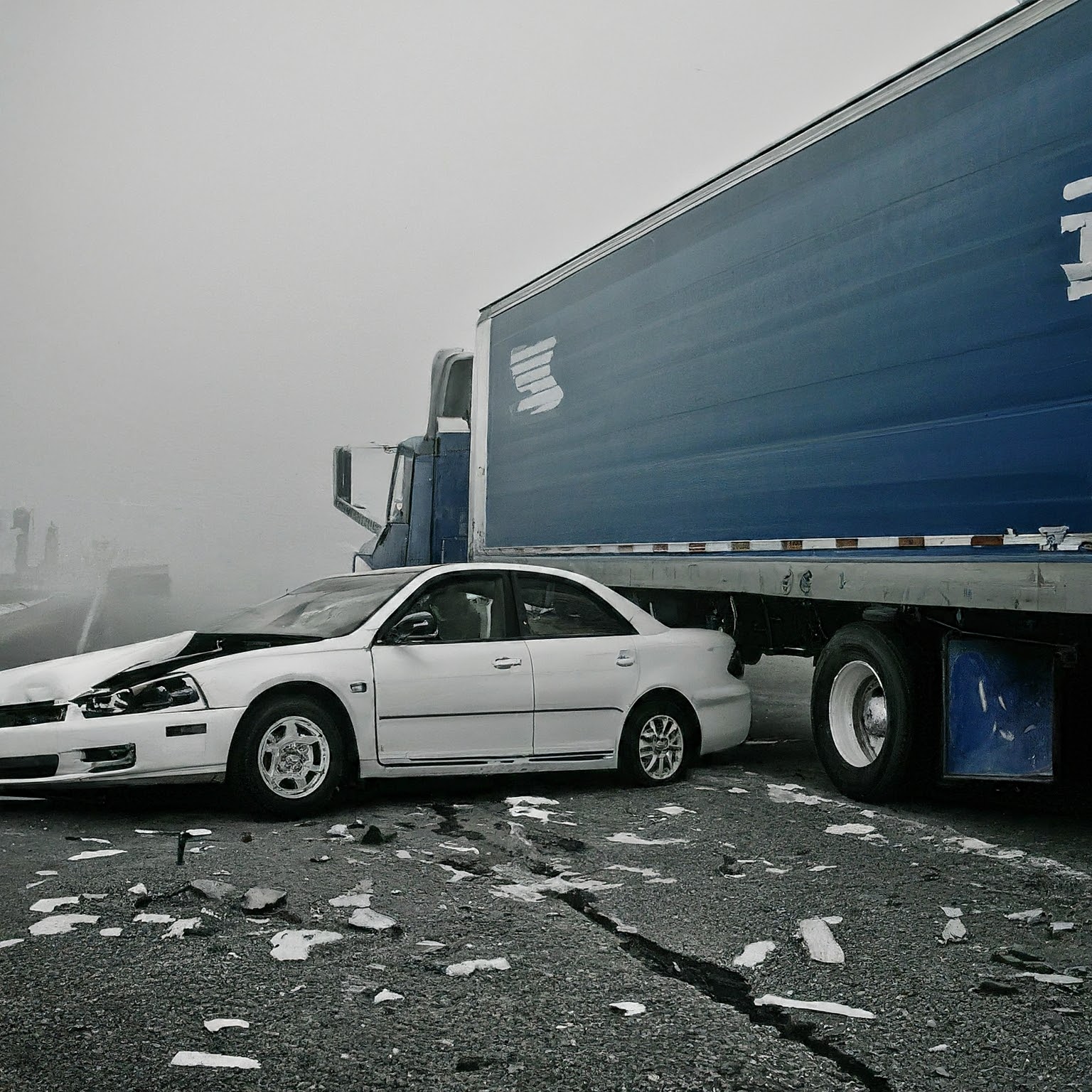Accidents involving tractor-trailers can be devastating. As a victim, one of the first things you need to think about, aside from getting immediate medical attention, is the preservation of critical evidence. Evidence plays a vital role in establishing liability and the extent of your damages. This blog post from the
truck accident lawyers at
Metier Law Firm explores the types of critical evidence in tractor-trailer accidents and how to ensure they are preserved.
Understanding the Importance of Evidence
Evidence is the foundation of any personal injury case. It helps to establish

who was at fault for the accident, the extent of the injuries sustained, and the impact of these injuries on the victim's life. In accidents involving tractor-trailers, preserving evidence is particularly critical given the complex nature of these cases.
Unfortunately, evidence can quickly disappear or be destroyed. Skid marks can fade, witnesses' memories can become foggy, and trucking companies might lose or destroy critical records.
Chemical evidence at the scene can point to the effects of having consumed alcohol. Therefore, taking steps to preserve evidence immediately after the accident is vital.
What Evidence Can Be Used to Prove Truck Driver Negligence?
In cases of truck driver negligence, various forms of evidence can be pivotal in establishing the negligent actions of the driver. Understanding what constitutes negligent driving and how to prove it is crucial for accident victims seeking justice:
- Driving Records and Logs: These documents can show if the driver failed to adhere to required rest periods or if they were operating the motor vehicle for extended hours, leading to fatigue.
- Accident Scene Evidence: This includes photos or videos of the accident scene, especially focusing on skid marks, vehicle positions, and damages. Such evidence can demonstrate scenarios like a driver ignoring stop signs or signals, indicating negligent driving.
- Witness Statements: Testimonies from other motorists, pedestrians, or residents near the accident site can provide accounts of the driver's behavior, such as instances of road rage or distracted driving.
- Truck's Electronic Data: Modern trucks are equipped with electronic control modules that record data like speed, brake usage, and steering patterns. This information can be vital in showing whether the driver was operating the vehicle recklessly or negligently.
- Driver's Background Information: Past records of driving under the influence of drugs or alcohol or a history of traffic violations can strengthen the claim of habitual negligent driving.
- Surveillance Footage: Footage from traffic cameras or nearby security cameras can provide objective evidence of the truck driver's actions just before the accident occurs.
- Mobile Phone Records: These can be used to establish instances of distracted driving, such as texting or calling while driving.
- Chemical Test Results: If the driver was tested for drugs or alcohol post-accident, positive results can be a strong indicator of negligence.
- Expert Testimonies: Accident reconstruction experts and other professionals can offer insights into how the accident may have occurred and the role of the driver’s actions in it.
- Trucking Company Records: These can reveal whether the trucking company neglected proper maintenance of the vehicle or overlooked the driver's previous negligent behaviors.
If you believe that your accident was caused by a truck driver's negligence, it’s important to consult with experienced car accident attorneys. They can offer a free consultation to help you understand your legal options and the types of evidence that will be most effective in your case.
Collecting and presenting this evidence can be complex, but it's crucial for proving driver negligence under
driver negligence law. With the right approach and professional legal representation, accident victims can effectively establish the negligence of a truck driver and pursue the compensation they deserve.
Types of Critical Evidence in Tractor-Trailer Accidents
In tractor-trailer accidents, evidence can be broadly categorized into four types:
1. Accident Scene Evidence
The accident scene can provide a wealth of evidence. This may include skid marks, debris, damage to the roadway or surrounding objects, and the final resting positions of the vehicles. Photographs and video footage of the scene can capture this evidence before it's lost.
2. Vehicle Evidence
Both the tractor-trailer and your vehicle can hold valuable evidence. This includes the damage to the vehicles, which can help reconstruct the accident, and any mechanical defects, which might indicate negligence on the part of the trucking company or a third party. The tractor-trailer's electronic control module (ECM) or "black box" can also provide data such as speed, brake usage, and driving hours.
3. Documentary Evidence
Various documents can serve as critical evidence to prove negligence. These include the police report, medical records, driver logs, truck maintenance records, and the trucking company's internal documents. Data from GPS systems or electronic logging devices (ELDs) can also be important.
4. Witness Testimony
People who witnessed the accident can provide crucial information about what happened. This can include other drivers, passengers, pedestrians, or residents of nearby buildings. Your own testimony about the accident and its impact on your life is also significant.
Steps to Preserve Evidence
Ensuring the preservation of this critical evidence involves several steps. It’s important for the police report, your insurance company, and also your legal case:
1. Document the Accident Scene
If you're able, take photographs or video footage of the accident scene. Try to capture different angles and details, such as skid marks, vehicle damage, your injuries, and the road conditions. If you're unable to do this due to your injuries, try to have someone else do it for you.
Always contact the police after a serious accident. The responding officers will create a police report, which can provide an objective third-party account of the accident. This report can be valuable evidence in your case.
Seeking immediate medical attention is crucial, not just for your health, but also for your case. Medical records provide documentation of your injuries, the treatment you received, and the impact of the injuries on your life.
4. Hire an Experienced Attorney
An
experienced tractor-trailer accident attorney and law firm can be instrumental in preserving evidence. They can take quick action to send a "spoliation letter" to the trucking company, which is a legal request for them to preserve specific evidence, such as driver logs, maintenance records, and black box data. They can also arrange for experts to inspect the vehicles before any repairs or alterations are made.
Try to collect contact information from any witnesses at the scene. Their testimony could be crucial in corroborating your account of the accident.
6. Keep a Personal Journal
Start a personal journal where you record your physical and emotional condition following the accident. This can serve as evidence of your pain and suffering.
The Importance of Prompt Action
The key to
preserving evidence in tractor-trailer accidents is acting promptly. While your health should always be your first priority, taking these steps as soon as possible can greatly enhance your chances of securing the compensation you deserve.
If you or a loved one has been involved in a tractor-trailer accident, our experienced legal team is here to help. We understand the critical importance of preserving evidence and can take swift action to protect your rights. Contact us today for a
free consultation.



 who was at fault for the accident, the extent of the injuries sustained, and the impact of these injuries on the victim's life. In accidents involving tractor-trailers, preserving evidence is particularly critical given the complex nature of these cases.
who was at fault for the accident, the extent of the injuries sustained, and the impact of these injuries on the victim's life. In accidents involving tractor-trailers, preserving evidence is particularly critical given the complex nature of these cases.
